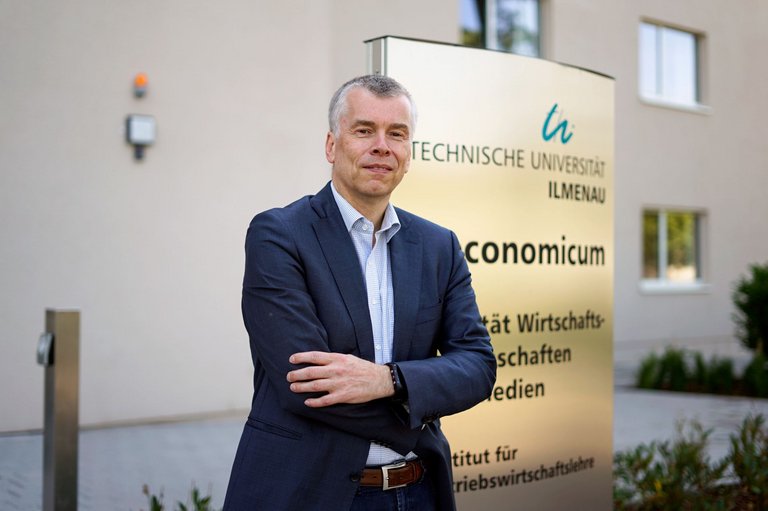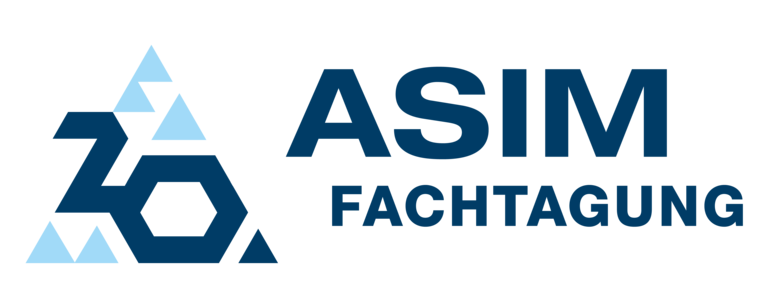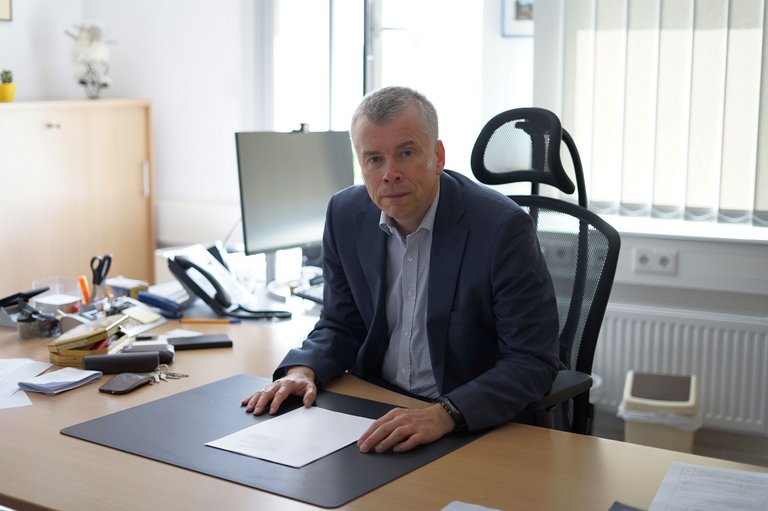Prof. Rainer Souren, head of the Group for Sustainable Production and Logistics Management, has been working on sustainable production since the 1990s. The economist uses his knowledge of business administration to design production processes ecologically and to close loops for a wide variety of products. In an interview, Prof. Souren explains in which industries the circular economy has already been successfully established and where the hurdles to closing the loop lie.

Hello Prof. Souren, you are working on sustainable production management. How does this differ from conventional production management?
Conventional production management aims to ensure that production is as cost-effective as possible and that the products can be sold well. Sustainable production also takes care to minimize waste or emissions, which have been neglected in the past. The keyword in business administration is co-production. Sustainable production management is about producing as few emissions as possible, conserving resources, and yet producing profitably.
Many people think of sustainable products as cotton bread bags or beeswax candles. How much sustainability is actually possible in the industrial production of our everyday goods?
Sustainability now plays a role in very many products and is increasingly demanded by consumers. However, it is usually associated with higher costs. As a possible solution, the state could create incentives and make sustainably produced products more affordable. Higher taxation of goods that are not produced sustainably would also be conceivable.
Sustainability is now increasingly arriving in global value chains - but one must ask the question: Is global value creation also sustainable? Of course, global value creation processes bring many economic benefits, but from the perspective of ecological sustainability and economic resilience, we have noticed, especially through the crises of recent years, that global value chains are not always good.
Is the solution to produce regionally?
Whenever possible, yes. I don't want to say that global value chains are wrong. There are many good reasons for having certain products produced in distant countries. But in addition to the economic perspective, i.e. where do I get my raw materials cheaply, you also have to consider questions such as: How sure am I that I will get the raw materials even in a crisis situation?
How is it possible to produce sustainably?
Among other things, by closing the loop in a sensible way. This can happen within the company itself when waste materials are recaptured and reused. The glass industry is a good example of how waste materials become a commodity again. It even takes cullet in the production process to make glass efficiently.
In other industries, too, many concepts already exist on how to successfully implement cycles in product families. These include, for example, reusing car parts that were manufactured 20 years ago, i.e. in earlier product generations. I think these considerations of sustainable product innovations are very important.
In your field, you conduct basic research that is oriented toward real problems. What are they?
I'm happy to teach and do research at a technical university because here I work with engineers who look at how production and logistics work from a technical perspective. We production economists bring our economic perspective to the table. We don't always just look at costs, but think in terms of evaluation categories such as CO2 emissions. Economists are very good at assessing, evaluating and judging things ecologically, keyword life cycle assessment. This is an area we are increasingly pursuing, working together with engineers at the university.
Specifically, I'm heavily involved with closed-loop structures, packaging cycles, the dual system, but also container systems in the automotive industry. How can reusable systems function sensibly? Do deposit solutions for packaging make sense? A new focus is economic and ecological performance measurement. We continue to develop tools and optimize them.
However, I don't just look at the production of goods, but also at services, which can also be designed sustainably. In doing so, I look at a wide range of services. Car or bike sharing are good examples here, but also concepts of so-called co-production, in which customers are integrated into production. I look at whether and to what extent this makes business sense.
As a business economist, how exactly do you go about looking at sustainable production chains and what does your working day look like?
I look at the actors and think about how to get them to participate in these cycles. Behavioral science aspects also play a role here, and as a business economist I see myself as a link between economics, sociology, psychology and the engineering sciences.
From time to time, I and my colleagues in the department visit industrial companies to get a picture of what happens in practice. I spend most of my time in front of the computer trying to map operational processes, for example sorting processes. That means I describe them graphically and model input-output flows with mathematical models. To do this, I also use special software for life cycle assessment, among other things. When a particular product is manufactured or a packaging cycle is represented, I can determine exactly how much CO2 emissions are generated. Optimization models also allow me to see which alternatives are the best from an economic and ecological perspective.
You already dealt with the circular economy in yourpostdoctoral thesis. Did you already know back then that the topic was gaining in importance?
Yes, because as early as the 1990s, my doctoral supervisor was one of the first production economists to express the opinion: We also have to take care of waste in our production processes. That's what motivated me to get involved with environmentally oriented production management. In my doctoral thesis, I looked at how waste can be recycled in a targeted manner. In analogy to production theory, I designed models of reduction theory. In my post-doctoral thesis, I then extended this by looking at entire closed-loop systems from a business management perspective.
The Recycling Management Act regulates the environmentally sound management of waste in Germany. What exactly does it say?
Companies must take care of the recycling of their products. End-of-life vehicles, electronic waste and packaging are among the three largest categories. However, the dual system for disposing of disposable sales packaging also has room for improvement. There is still much to be designed and researched.
Are there also products for which a cycle cannot be closed?
In almost all cycles, it takes a lot of actors to participate to make them work, and there are still gaps in many cycles. In the final analysis, there are three possible reasons why a cycle is not closed: In the case of collection, we speak of the collection gap. It occurs when there are no return systems or they are not used. Think of old cell phones that lie in drawers for years.
The second possibility is the reduction gap. You can't even get a product apart properly to recycle it. This problem should not be addressed at the recycling stage itself, but at the product development stage. The last gap is the induction gap. It occurs when consumers believe the recycled product is of inferior quality. One example is retreaded tires. Here, a change in thinking must take place. As two of the above examples show, consumers ultimately have a key role to play in ensuring that recycling systems function properly. But it goes without saying that companies also have a responsibility, as the law clearly stipulates.
The issue of sustainability has become increasingly important in recent years. How do you notice this change of spirit in your field?
I notice it most with my students. When I started at the Technical University of Ilmenau in 2006, I explained car recycling concepts to the students. At that time, very few of them could imagine doing without a car. When I explain the same concepts today, the students tell me that they use public transportation or bicycles. Nowadays, the smartphone is more suitable as an object of study. More and more students are coming to me on their own initiative with questions about sustainability. They are intrinsically motivated to learn and research about sustainability. Companies are also approaching our field, often through final theses with students. They, too, are increasingly interested in making their production more sustainable.
In teaching, you also look at sustainability from an ethical perspective, for example in the lecture on business ethics and sustainability management. What do you teach students here?
Together with the students, we look at issues from the everyday lives of business economists, e.g. fair employee pay, fair global trade or morally acceptable product and service offerings. Students discuss possible solutions. Often there are many options and no right or wrong. Rather, I want them to be able to justify their solutions well and think for themselves. This prepares them for their future work activities.
Personal details:
Prof. Rainer Souren studied business administration at RWTH Aachen University. After graduating, he worked as a research assistant at the Faculty of Economics at RWTH Aachen University. His doctoral thesis was on "Theory of Operational Reduction - Fundamentals, Modeling and Optimization Approaches of Material Disposal Processes". In his habilitation, which was funded by the German Research Foundation (DFG), he worked on consumer goods packaging in the circular economy until 2002. Subsequently, he taught general business administration, in particular production management and business informatics at the University of Bremen. Since 2006, Prof. Souren has been teaching and researching at the TU Ilmenau and heads the Group for Sustainable Production and Logistics Management. His research interests include customer-integrated production, efficiency measurement, and circular and waste management. Prof. Souren is also active in the Association of University Teachers of Business Administration e.V. (VHB). As a former chairman of the Commission for Sustainability Management, he designed, among other things, cross-university teaching concepts for sustainability.
September 13-15, 2023: Symposium on sustainability in production and logistics

Sustainability in production and logistics is also on of the topics of the ASIM Dedicated Conference, the largest European simulation conference for production and logistics, which will take place at TU Ilmenau from September 13 to 15, 2023. For three days, scientists, users and service providers will discuss forward-looking trends and current developments and present their scientific work and applications in industry.
Contact
Univ.-Prof. Dr. Rainer Souren
Head of the Group for Sustainable Production and Logistics Management


